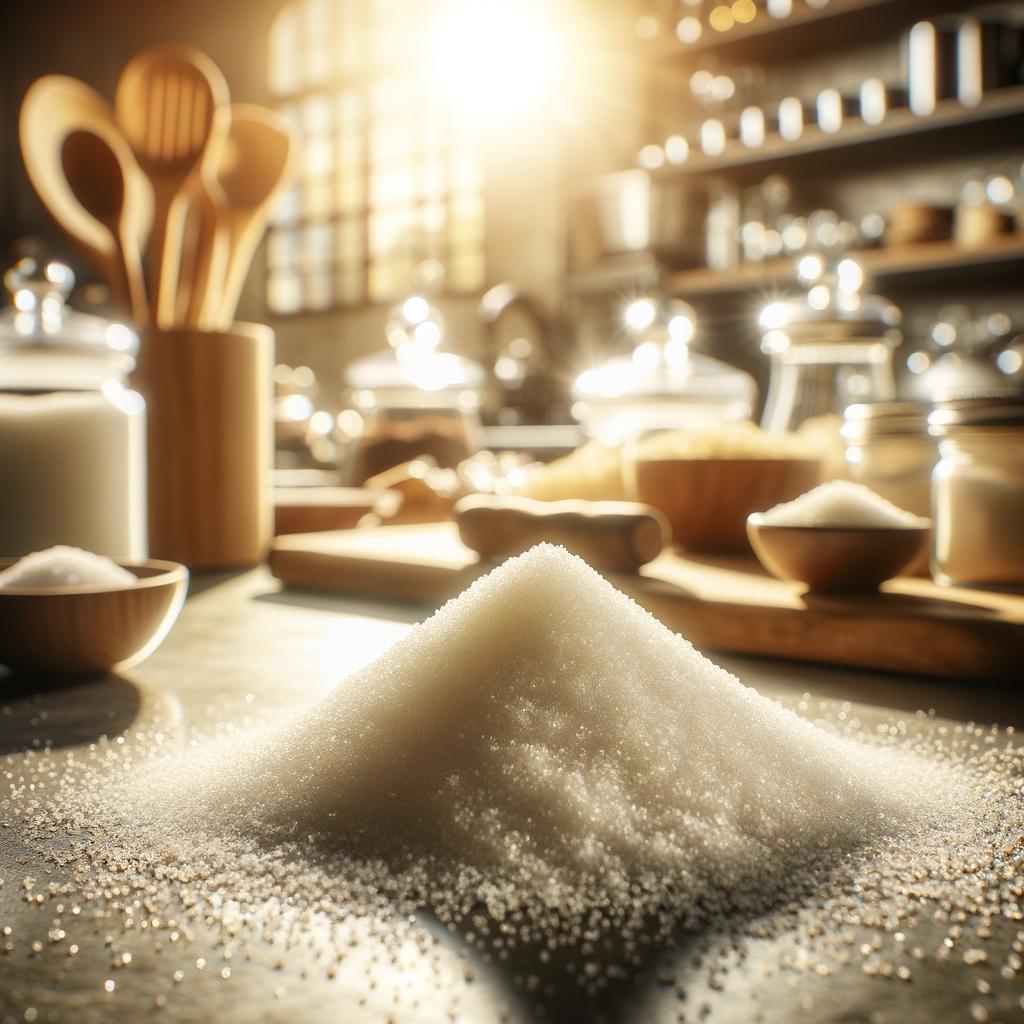Vanilla Sugar

Description Vanilla sugar, as its name suggests, is a delightful blend of sugar and vanilla, two ingredients that are fundamental to the world of baking and desserts. It is a fine, white granulated substance, with tiny black specks of vanilla beans scattered throughout, giving it a distinctive and alluring appearance. The texture is soft and powdery, akin to powdered sugar, but with a hint of the exotic due to the presence of vanilla. Its flavor profile is a harmonious fusion of sweetness from the sugar and a rich, creamy, and slightly floral undertone from the vanilla. What sets vanilla sugar apart from regular sugar is its dual ability to sweeten and flavor at the same time, making it a precious ingredient in the culinary world.
Primary Uses Vanilla sugar is a versatile ingredient that finds its place in a multitude of cuisines and dishes. It is commonly used to sweeten and enhance the flavor of baked goods like cookies, cakes, pies, and pastries. It also adds a sweet, aromatic touch to hot beverages like coffee, tea, or hot chocolate. In European cuisine, particularly in countries like Germany and Sweden, it is a key component in many traditional recipes. Apart from its culinary uses, vanilla sugar often finds its way into homemade skincare products, owing to vanilla's antioxidant and anti-inflammatory properties.
History The history of vanilla sugar is intertwined with the histories of its two components: sugar and vanilla. Sugar has been used for centuries, and its transformation into a sweetening agent revolutionized the culinary world. On the other hand, vanilla, native to Mexico, was used by the Aztecs for flavoring their chocolate drinks. When these two ingredients met, likely in the bustling markets of Europe, they created a product that was more than the sum of its parts. The use and popularity of vanilla sugar have grown over time, with it now being a staple in many households and bakeries around the world. An interesting folklore associated with vanilla sugar is that it was believed to have magical properties, and it was often used in love potions and spells.
Nutritional Information While vanilla sugar is primarily a source of carbohydrates due to its sugar content, it also offers some nutritional benefits from the vanilla. Vanilla contains small amounts of B-complex vitamins such as niacin, pantothenic acid, thiamin, riboflavin, and vitamin B6. It also contains trace amounts of minerals like calcium, magnesium, potassium, and zinc. While the consumption of vanilla sugar should be moderated due to its high sugar content, the presence of vanilla adds a touch of nutrition to this otherwise indulgent ingredient. Compared to regular sugar, vanilla sugar offers a more complex flavor profile and a touch of nutritional value, making it a preferred choice for those looking to add a dash of luxury to their dishes.

